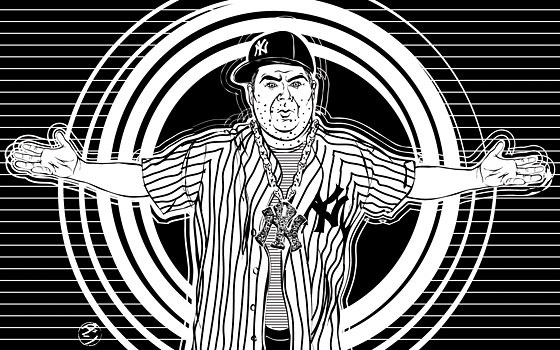
S ince Javier Vazquez was traded away from the Yankees—after the iconic grand slam then–Red Soxer Johnny Damon hit off him in Game 7 of the 2004 American League Championship Series—he’s consistently been one of the most valuable pitchers in baseball. His return to the Bronx was the highest-profile pitching addition to the world champs in the off-season; almost every baseball analyst thought it was a great move.
But Yankees fans, remembering Game 7, didn’t—and their antagonism toward the Vazquez trade has started to feel like a self-fulfilling prophecy, the pitcher responding to the disdain with which he was greeted by turning in wretched performances. Vazquez, as of press-time, sports a gnarly 9.00 ERA, and got booed off the mound in his first home appearance.
He’s not just having bad luck: His pitch speed and accuracy are both down significantly. But he’s not injured, and he’s got a financial incentive to play well since his contract is up at the end of the season. Though it usually seems like a self-congratulatory myth meant to make us feel tough for living in the big city, the notion that there’s a super-intense “New York spotlight” under which some players lose focus has started to almost seem plausible in this case.
Compared to Vazquez, past Yankee flameouts have had plenty of reasons besides intangible Bronx pressure to struggle—Randy Johnson was old, Carl Pavano was a gimp, Jeff Weaver was never as good as everyone thought in the first place. Vazquez has none of those problems. He’s a pitcher with a record of tremendous consistency who just had the best season of his career.
The one thing he does have going against him is an unprecedented level of fan hostility. Even the team’s most avowedly new-school followers, the bloggers skeptical of unscientific notions like “intangibles,” were horrified by the trade. “When I think of Javier Vazquez in pinstripes, I want to puke,” wrote one. The bleacher die-hards have made their feelings clear already, too. Could this relentless negativity toward Vazquez have something to do with his struggles? It may be frustrating that athletes sometimes don’t try their hardest, given how much money they make, but it’s not so hard to imagine that it’s more difficult to motivate yourself to prepare and perform when you’re walking into a stadium where 50,000 people are ready to make it plainly obvious that they hate you. Modern fans may underestimate their own power, having gotten too accustomed to the notion of baseball players as rich guys from TV. Said rich guys might get driven to games from gated mansions and spend their nights in a Greco-Roman dream state of libidinous satisfaction, but during play they’re still humans liable to develop human relationships with the home crowds that come to scrutinize them 81 times a year. And a guy who’s been appreciated on four different teams might be liable to spend fewer hours studying film or lifting weights when he’s involuntarily traded back to the one place where he’s famously reviled—especially when he could get out of town as soon as October.
So maybe Yankee partisans should try seeing if their collective voice can do good as well as evil. Columnists could urge patience. Fans could give him a Jeter-level cheer the next time he walks to the mound. It can’t hurt, and it might help. We don’t know what’s wrong with Javy Vazquez, but we do know that he’s not deaf.
Have good intel? Send tips to intel@nymag.com.
